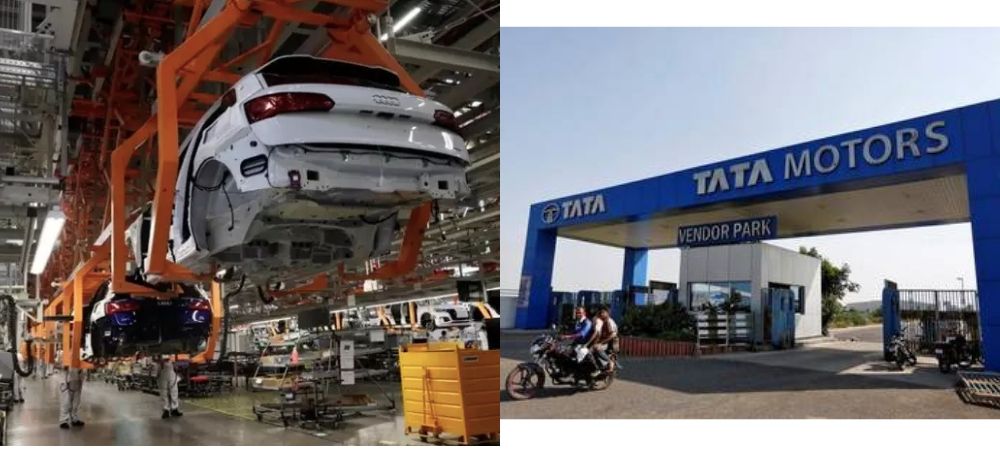

It seems like a voluntary retirement scheme is becoming the latest trend amidst the prolonged slow down as Tata Motors Ltd is also working on a voluntary retirement scheme (VRS), according to sources.
Why Would This Happen?
After BSNL and MTNL VRS scheme, Tata Motors Ltd is also planning on VRS schemes for its employees as India’s largest vehicle maker bears the brunt of a prolonged slowdown in the domestic market.
Tata Motors is not the only one who is planning on these kind of strategies as earlier other vehicle makers such as Hero MotoCorp Ltd, Ashok Leyland Ltd and Toyota Kirloskar Motors Pvt. Ltd that have introduced similar schemes this fiscal.
The company’s adversity compounded by stringent emission norms that are set to kick in from April as well as possessing one of the largest workforce in the industry.
To Whom This Scheme Will Be Applicable?
As per the information, this scheme will be offered to employees of different departments, across its businesses of passenger and commercial vehicles.
On the condition of anonymity, the sources informed that “this year, Tata Motors’ employee cost-cutting plans are more aggressive than the previous times. Besides removing surplus staff at JLR in recent months, the company is now seeking voluntary retirements from more than 1,600 people across all locations and hierarchies,”.
According to sources, permanent employees across departments will be considered for VRS, but the focus will be on reducing the number of employees on the engineering side of operations.
Also, the contracts of some senior employees, retained as consultants post-retirement, may not get renewed.
The source said “On the engineering side, the employee count is quite heavy compared to other automakers. Given the challenges ahead, the company will not be able to run efficiently with such a high employee cost,”.
He added, “Headcount rationalization across the board had led them to even look at the research and development (R&D) teams, including the engineering research center in Pune, which is the hotbed of all R&D activities for the company,”.
How Is Tata Motor’s Trying To Cope With The Situation?
During the September quarter, the company’s employee cost as a percentage of net sales swelled to 10.7% from 5.9% in the year earlier.
While Tata Motors’ stand-alone net sales fell 44% from a year earlier, during the quarter, it plunged to a net loss of ?1,281.97 crore from a year-earlier profit of ?109.14 crore.
In terms of employee cost as a percentage of net sales at the country’s largest passenger vehicle manufacturer, Maruti Suzuki India Ltd, accounted for at 4.9%, compared to 3.5% in the year-ago period.
Although, over the last few years, Tata Motors has been trying to reduce its employee cost and it had launched a similar offer in 2017, but most of the permanent employees didn’t show any interest in these kind of schemes.
What Does Tata Motors Say About This News?
“At the moment, there is no such plan,” said a spokesperson for Tata Motors.
Fortunes of Tata Motors’ India operations have been dwindling over the last few quarters.
The sales of heavy and medium commercial vehicles reduced to 59%, while overall sales for the company in the segment declined to 41.2% in the September quarter.
The demand for heavy and medium commercial vehicles is likely to decline further, due to the introduction of Bharat Stage VI (BS-VI) norms, posing more challenges in the next fiscal.
According to manufacturing field analyst, the demand projection for the next few quarters is not buoyant with BS-VI norms set for introduction, while there will be greater automation in the manufacturing process. Hence, this step by the company makes sense.
What Does Future Hold For Auto Industry?
As per the reports, 1 host of new regulations for the automobile industry will be introduced in the country in the next few years till 2023 that will make vehicles across categories costly and is expected to have an adverse impact on demand.
The country has adopted new safety norms for vehicles In October and the new emission norms will come into effect in April. (Reference)
The second and stricter phase of corporate average fuel efficiency norms will be implemented from 2022 and the real-time driving emission test will be introduced in 2023.
The post Tata Motors Stung by Slowdown; Will Offer VRS To 1600 Employees To Reduce Expenses first appeared on Trak.in . Trak.in Mobile Apps: Android | iOS.
from Trak.in – Indian Business of Tech, Mobile & Startups https://ift.tt/33z8iUw
Subscribe by Email
Follow Updates Articles from This Blog via Email


No Comments